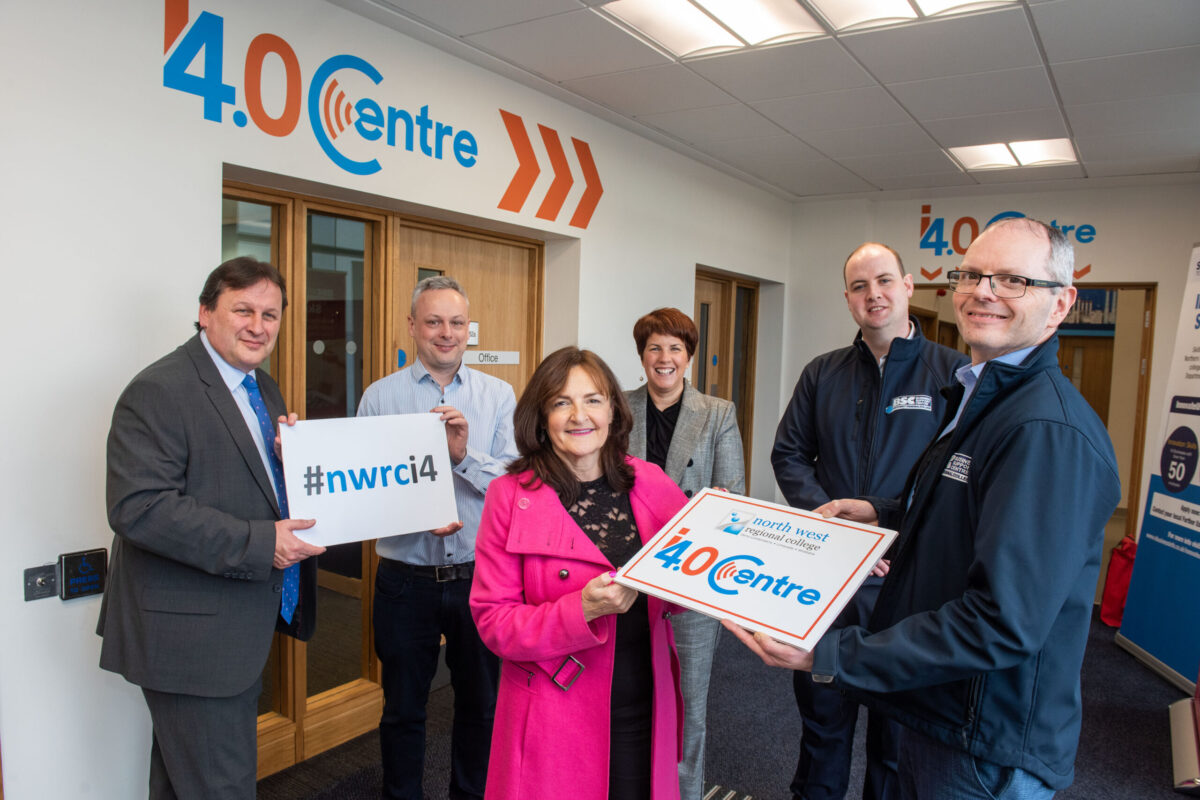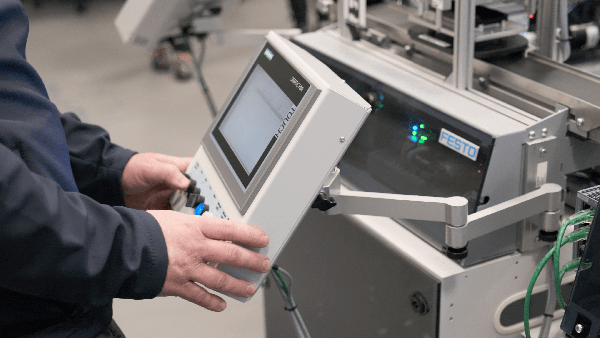NI FE College Develops Innovative Centre for Smart Technologies

Driving growth in NI’s manufacturing sector
North West Regional College (NWRC) is playing a major role in driving forward growth in Northern Ireland’s manufacturing sector with a unique new facility delivering training focused on automation and robotics.
The college, which is a leading provider of Further and Higher Education and Skills Training in Northern Ireland, supporting over 10,000 students each year, recently opened the unique Industry 4.0 (i4.0) Centre at its Springtown Campus.
This modern facility is equipped with the latest technology for entrepreneurs and businesses to capitalise on new technology and innovation in new products and processes for their business. It also boasts a teaching lab space with specialist high-tech equipment, suitable for courses in a range of areas of automation and robotics, electronics, cloud technologies, artificial intelligence, machine learning, smart manufacturing and 5G technology. It aims to provide a pipeline of talent for industry and those wanting to upskill or retrain for the exciting opportunities that the 4th industrial revolution presents.
Leo Murphy, Principal and Chief executive of NWRC said:
“At the i4.0 centre we will be supporting businesses and providing training in an exciting technology area, to meet future business needs.
Supporting Industry
“The new facility will nurture skills that will benefit and be shared by SMEs and larger businesses, each with the potential to innovate, adopt new technologies, and compete in national and international markets.
“It is also part of the College’s plan to support industry to embrace new technologies and skills, as articulated in DfE’s 10X vision. Through our existing facilities of Foodovation, Product Design Centre, DIAL (health and care), and XR Hub (augmented and virtual reality) we have helped businesses and entrepreneurs to develop and enhance products, processes and services, underpinned with the necessary skills to do so.
“With funding from the Department for the Economy, this investment in first-class technology and training underpins our commitment to support and respond to industry demands and advancements in technology and we look forward to working with learners, businesses and entrepreneurs in this exciting new addition to our offer.’’
The FE College is a partner in Smart Nano NI, a consortium backed by the UKRI Strength in Places fund with over £43m investment aimed at building capacity in manufacturing skills along the Derry~ Londonderry / Belfast corridor.
Smart Nano NI lead, Mark Gubbins said:
” This is a significant development in our aim to build capacity in manufacturing skills and collaboration along the Derry~Londonderry / Belfast corridor. North West Regional College is taking an important role, alongside the other academic and industry members of the consortium, in supporting innovation and regional growth by investing in these state-of-the-art facilities and continuing to build strong partnerships across the region”.
Collaborative approach
The Manufacturing sector contributes around 15% to NI’s GVA, which while it is ahead of the UK at 10%, it is well behind the Republic of Ireland, where manufacturing contributes more than 30%. This collaborative approach aimed at expanding the regional focuses on accelerating innovation, digitalisation within Northern Ireland manufacturing.
Commenting on the potential for skilling up the local workforce Stephen Kelly CEO Manufacturing NI said:
“The North West Regional College facility will help fulfill our need to grow a skilled workforce, particularly now as we drive towards greater productivity, automation and digitisation as firms tackle increasing competition and persistent labour shortages.
“Within Northern Ireland 90,000 people are directly employed in manufacturing with a further 130,000 jobs supported by it. That means one in four families depend on a manufacturing wage. This collaborative skills approach is exciting to see as we know there is a massive potential to expand our manufacturing sector by harnessing new technologies, growing skills, and taking full advantage of our globally unique post-Brexit proposition.”













Responses